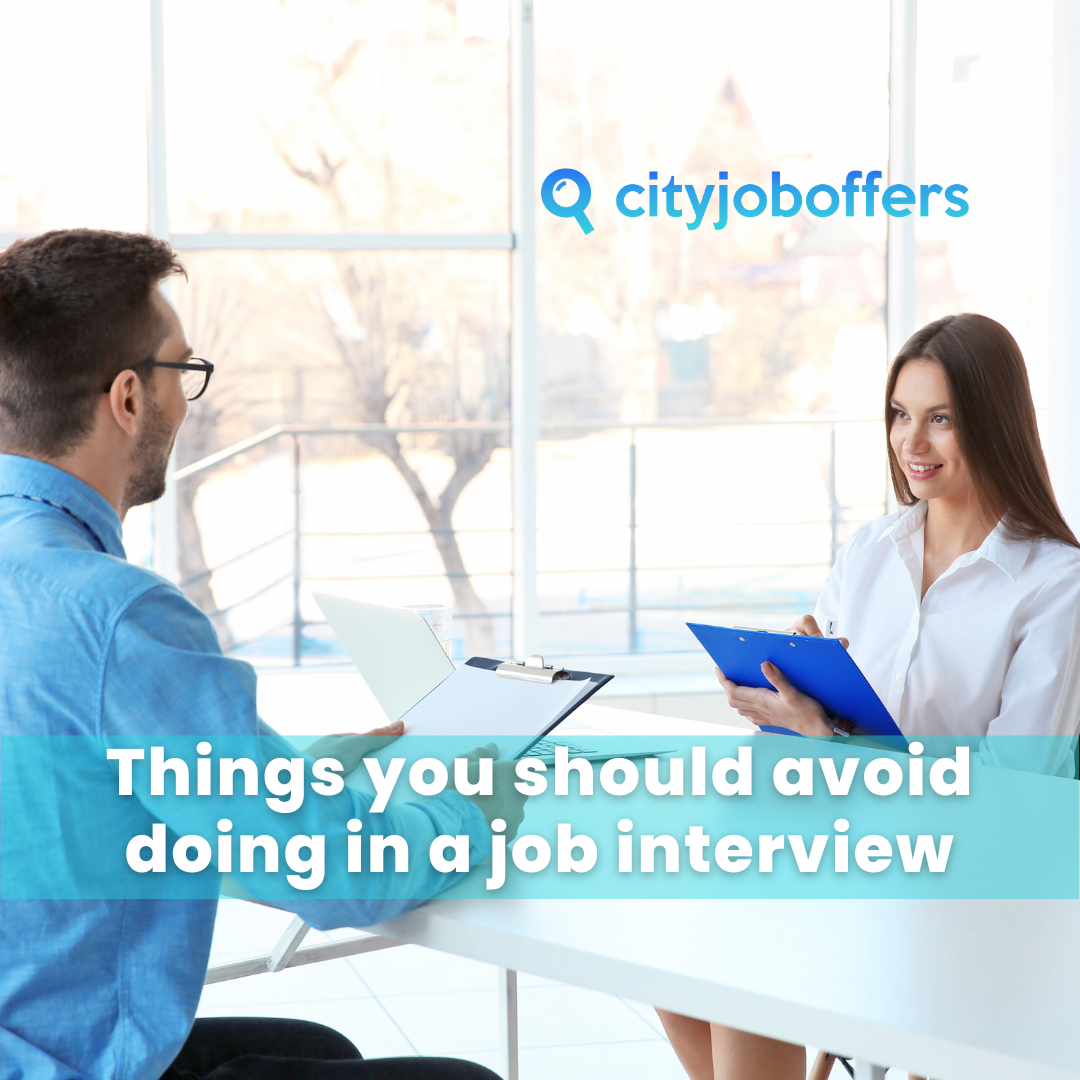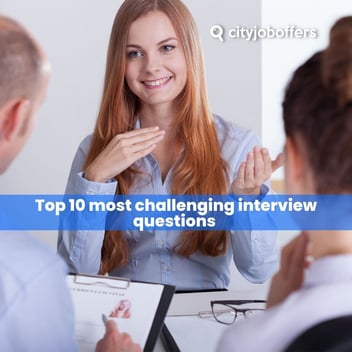
7 things you should avoid doing in an interview
First impressions matter, especially when it comes to job interviews. You want recruiters to see the best of you and to not get bored. This is your moment to shine so don’t waste your shot.
Sometimes knowing what not to do is the best way to ace an interview. So what should you avoid doing if you want to get a follow-up interview?
Sell yourself poorly
When you talk about yourself, explain what’s relevant to the job. Recruiters don’t want to hear about your student of the month award that you received in middle school. They want to know if you have the capabilities and experience to complete the responsibilities of the role.
Keep the conversation light and energetic otherwise the interviewer might fall asleep. Remember that they're interviewing multiple people throughout the process so give them something different from everyone else.
Forget to research the company
Knowing background information about the company is crucial. This lets the hiring manager know that you are serious about the job. Learn about the specific department that you want to join. Having different talking points, lets them know that you’ve done your research but it also allows you to to connect your own values and interests with theirs.
Research the hiring manager and mention something you learned about them. This can be a great icebreaker and helps you stand out from the crowd so they’ll remember you. This already gives the company an idea of what kind of person you are and how motivated you are to get the opportunity.
Show that you’re willing to spend time learning about them and they’ll be more likely to spend more time on you.
Not follow directions
Demonstrating strong listening skills is essential, particularly in an interview setting, where it can significantly influence the interviewer's perception of your capabilities. Show that you are attentive and capable by carefully following any instructions given to you during the interview process.
For instance, if the interviewer requests that you complete a quick test, ensure that you pay meticulous attention to the directions provided. This attention to detail not only reflects your ability to follow instructions accurately but also highlights your respect for the interviewer's time and the interview process
. Conversely, if you fail to adhere to these directions, it may signal to the interviewer that you struggle with following instructions, which can raise concerns about your ability to perform effectively in the role. Consequently, this oversight could diminish your chances of being invited for a subsequent interview.
Be too persistent
If you’re too needy, you’re probably not going to get a second interview. Acting overly desperate or as though your entire future hinges on getting this particular job can come across as unprofessional and may make the interviewer uncomfortable. It’s important to maintain a level of professionalism and confidence.
After the interview, it’s perfectly acceptable and even encouraged to follow up with the interviewer to express your continued interest in the position. However, you should avoid bombarding them with a barrage of messages or emails, repeatedly asking if a decision has been made.
Such behavior can be seen as intrusive and overbearing, which might lead the hiring manager to question your ability to handle stress or rejection.
Instead, stay calm and exercise patience, understanding that the hiring process can take some time.
Demonstrating that you can wait gracefully shows maturity and an ability to respect the company’s timeline, making you a more attractive candidate.
Constantly interrupt
Let the interviewer finish their statements before answering. You may be nervous to say everything that you want to explain and under a time pressure, but interrupting consistently is the best way to lose a chance at a second interview.
Not ask any questions
If you don’t ask any questions or not enough, it can give the false impression that you aren’t really interested in getting the job. It can be hard to come up with questions but try asking about the office environment, the company culture or if employees are motivated to be creative and come up with innovative ideas.
Ask about what your first month in the role would be like. Ask how you’ll be assessed. This will show the interviewer that you’re very involved, proactive and eager to get the job. Avoid questions about salary, vacation time and what you’ll get out of the job in the first interview.
You have to explain what you have to offer to the company, not what you want out of the deal.
Punctuality
This is basic, but people still forget how important it is, especially in a first impression. Whether the interview is online or in person, be on time. Actually, it’s even better if you can get there a bit early, just to avoid any possible delays if you have to commute.
Being on time lets the company know that you are a professional, and it could give you an advantage over other candidates who weren’t as punctual.


.png?width=352&name=REVISADO%20%20%20M%20-%20Blog%205%20ways%20to%20make%20a%20good%20impression%20in%20a%20job%20interview%20CITY-JOB-OFFERS%20(Instagram%20Post).png)
